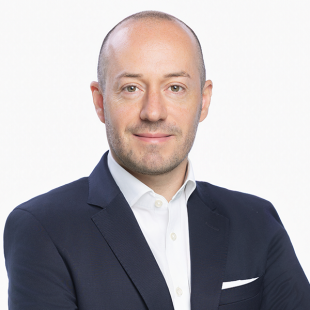Luxembourg fund structures provide comfort to cornerstone investors

Contact
Private equity funds have been investing in emerging Europe for more than 30 years. Smaller local funds that traditionally raised money from local wealthy individuals and financial institutions are increasingly looking to attract investors from outside their domestic markets. Despite being familiar with the region and its risks, such cornerstone investors are more likely to invest in a fund set up in an established fund jurisdiction.
As one of the world’s most sophisticated financial centres, Luxembourg offers fund structures that institutional investors and multinational general partners are well-versed in, and as such is playing a growing role as a bridge between Central and Eastern Europe and international investors. We spoke with Benjamin Bada, partner at CMS Luxembourg, to take a closer look at the benefits of structuring a fund through Luxembourg.
It is a sign of how far emerging Europe’s venture capital eco-system has travelled that Luxembourg has become a leading destination for those seeking to set up funds to raise capital from institutional investors outside their own countries. Small-scale schemes in the region may still be able to rely on raising money at home, but for more ambitious projects the next step on the journey is to secure international backing. Particularly, venture capital investment firms and those building SME or ESG-balanced portfolios are keen to attract international funds.
Benjamin Bada said: “The trend for managers in CEE to choose Luxembourg for structuring an investment is not new, but is definitely increasing. Their first fund may not raise capital outside its own country, but it will look to Luxembourg for its second fund because Luxembourg opens the door to international investors.”
At one end of the scale, those using Luxembourg as their favoured jurisdiction include funds focused on venture capital projects, while at the other are institutional investors and state-backed entities that are looking to invest in development funds across the region.
Luxembourg’s attractions
Luxembourg is second only to the US as an international centre for funds and boasts a rich pool of investors who are comfortable with its legislation, its location right at the heart of the EU, and its access to EU passporting rights for financial services.
Among its many attractions are its political stability and neutrality. At the same time, Luxembourg has developed an agile financial eco-system that is constantly evolving to meet the needs of the financial community and enabling a boom in venture capital, private equity, infrastructure and alternative investment funds over the past decade.
It is home to a vast range of expertise and experience, not just among fund managers but also in the network of professional and support services such as law, accounting, banking, broking and administration, pulling in talent from around the world.
Benjamin Bada said: “Luxembourg provides an investment toolbox for different types of funds, whatever the size, geography or sectors on which they are focused. It’s a cosmopolitan and multi-lingual centre that offers enormous flexibility, and that makes it a very attractive place for sponsors and managers in Central and Eastern Europe.”
Fund managers from emerging Europe that are raising fresh capital are particularly keen to target international development finance institutions (DFIs), such as the European Bank of Reconstruction and Development and the European Investment Bank and its venture capital arm, the European Investment Fund, which have a long-standing presence in Luxembourg and in some instances require funds in which they invest to be structured through well-established jurisdictions.
The involvement of such cornerstone investors brings a credibility that offers other investors reassurance. Benjamin Bada described it as a “label of quality” that was particularly important in attracting international investors who may not previously have been familiar with the region.
He said: “In the past, Central and Eastern Europe was underinvested by western investors, but that is definitely changing. There is increasing interest in the region and that reflects the growing number of opportunities for investors.”
A smooth process
Sophisticated investors may already be comfortable working within the Luxembourg jurisdiction, but the financial centre makes great effort to make the process of setting up and investing in funds as smooth as possible for relative newcomers.
“The challenge for fund managers in CEE is to attract institutional investors who may not be so aware of the region, but as they build up a track record and the size of their targets gets bigger, they can make the transition to larger funds with a wider investment appeal,” said Benjamin Bada.
The know-how on tap means fund sponsors and managers can be guided every step of the way and not only is a wide variety of languages spoken, documentation is drawn up in English as the international language of business.
Benjamin Bada said: “There is a constellation of service providers in Luxembourg who have the knowledge and expertise in fund matters to help see the project through from the start.”
There is a constellation of service providers in Luxembourg with wide-ranging knowledge and expertise.
The availability of expertise comes with a cost and while Luxembourg is not a cut-price option for setting up funds, the skills and compliance on offer bring a high level of confidence in it as a place to do business.
One flagship fund that has been created to plug the financing gap between state investment and private initiatives is the Three Seas Initiative Investment Fund. Set up to boost economic growth in the region by generating interest among investors, its aims include promoting energy security, smart connectivity and achieving climate goals. It is sponsored by 13 countries and has a target of raising EUR 5bn in public and private funding to unlock a further EUR 100bn in infrastructure projects.
Expertise in sustainability
Just because Luxembourg works with many long-term investment projects, this does not mean the pace of work is suited only to distant time horizons. It prides itself on its flexibility and speed in setting up funds capable of deploying capital very quickly.
This gives it a vital role to play in helping countries in emerging Europe recover from the impact of the Covid-19 pandemic by investing in enterprises that will play a leading role in the economic recovery.
March 2021 saw the introduction of the EU’s Sustainable Finance Disclosure Regulation (SFDR), which obliges funds to provide detailed information on ESG-related issues and applies to firms and products as part of a concerted effort to make businesses more sustainable.
And with global attention increasingly focused on the environment, Luxembourg is building on its reputation as a centre for sustainable finance—not just as the world’s leading market for green bonds, but also as a location for responsible investment funds.
SFDR is a significant milestone according to Benjamin Bada, and one that will cement Luxembourg’s position as a global centre for funds that supports and encourages good environmental and social governance. He said: “It is definitely a game-changer for the market as investors’ attention focuses more on corporate and social responsibility.”










